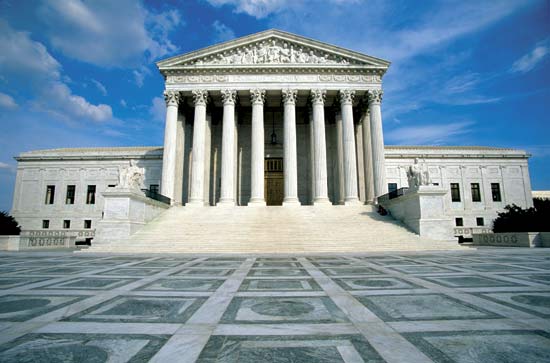The case of Paroline v. United States will be argued before the U.S. Supreme Court today. This is one of those cases where emotions are appropriately high but ultimately court observers may find that the Court may dryly rule upon statutory construction issues… meaning grammar. But this case highlights a law which many internet viewers may not know about — a statute which says if a person possesses child pornography, that person owes restitution. Even if it is just two images.
In Paroline, a minor named “Amy” was abused by her uncle who then spread images far and wide across the internet. Under the Mandatory Restitution for Sexual Exploitation of Children Act, a victim is entitled to restitution. “Amy” has apparently filed nearly 150 claims in cases where her images in evidence and has obtained orders in her favor between $100 and $3.5 million dollars. Of note, there appears to be no support for the uncle or a defendant who had 30,000 child pornography images on his computer — at the U.S. Supreme Court, there’s more than a dozen amici briefs and none support the defendants.
A “single violator” could be hit with a joint-and-several award for the full amount of the victim’s losses. Indeed, it appears that victims can receive more than one award of their total damages (presumably, the chance of getting paid on these is low although Amy has reportedly collected $1.5 million over the years). In short, someone found with even a small amount of child porn images could find it costing millions. To wit, defendant Paroline had two (2) images of Amy on his computer and faces a $3.4 million award.
The dispute arises from interpretation of the statute. The Act calls for a mandatory restitution order if someone is found guilty which is “the full amount of the victim’s losses.” Section 2259(b)(1) lists off six types of losses (e.g., medical, therapy, various expenses, income, and fees) and that list ends with “any other losses suffered by the victim as a proximate result of the offense.” Thus, the question is whether the “proximate result” requirement applies to ONLY the last item or does it refer to the entire list (incidentally, “proximate result” is synonymous with “proximate cause”). This triggers what is called The Rule of The Last Antecedent (or Last Antecedent Rule).
But policy is an important factor. On the one hand, victim advocates claim that a proximate cause requirement would be difficult, if not impossible (Amy apparently met that burden using a psychologist expert). Moreover, the law is premised upon the public policy that viewing such images is damaging to the victim and perpetuates production of child pornography. In short, if the law can eradicate the interest, it may decrease victimization.
The argument for defendants is that someone who, perhaps unaware that the image depicted minors, could be found guilty and hit with a large restitution award; to that end, the suggestion is that criminal statutes should be extremely clear and that a “proximate cause” requirement is befitting traditional tort elements. Such policy arguments may or may not rule the day on this statute interpretation question. It is conceivable that a strong public policy exists but the statute was simply not written correctly.
A Constitutional issue arises as to whether this is an excessive fine under the Eighth Amendment (e.g., someone possesses one or a few images but is hit with a million dollar award). The Fifth Circuit was unpersuaded that this was even a punishment since it is “restitution” and not “punitive.” Alternatively, that court held, “while the imposition of full restitution may appear harsh, it is not grossly disproportionate to the crime of receiving and possessing child pornography.”
Fifth Circuit opinion is here.
SCOTUSBlog has all the pleadings here. And a nice summary. Their live blog of the oral argument is here.


